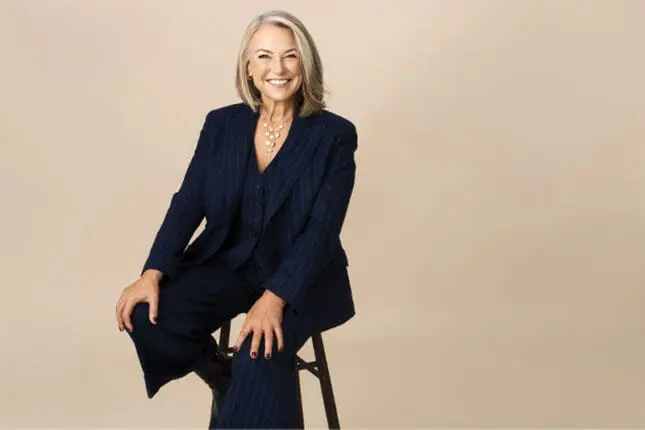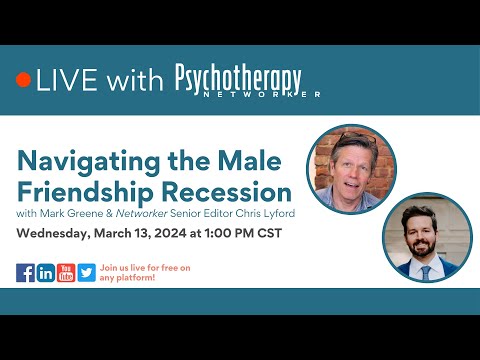Making new friends is a topic of conversation in my therapy sessions, on my podcasts, and in my life. Many of my colleagues and I advise our clients to “get out and make friends,” but we have to break it down and talk about how. In a recent online workshop, excerpted below, I decided to do just that.
Research shows that people with strong social connections are generally happier and healthier. But not everyone gets excited about the prospect of developing friendships, and, even for extraverts, there’s no infallible formula for cultivating connections. Making new friends can evoke a sense of insecurity and fear of rejection around the question of “do I belong?” Because it’s more of an art than a science, making friends is a skill we all have to learn through trial and error. This means trying things that sometimes miss the mark, and growing from the experience, however awkward or embarrassing.
Especially for young adults, meeting new people can feel risky and challenging. And even if we’re very social online, it doesn’t mean that we possess those skills in real life. Modern loneliness masks itself as hyperconnectivity. It’s not uncommon to have thousands of virtual “friends” but no one to feed your cat or pick up your prescription when you’re sick. And we wonder why there’s a “loneliness epidemic.”
There’s an exquisite reciprocity in friendship. While we can love someone who doesn’t love us back, we can’t have a friendship with someone who doesn’t want to be our friend. Making new friends often occurs at the nexus of happenstance and choice. If you look back at the last time you made a new friend, you’ll likely find that both of these elements were present.
Did you meet through joint circumstances at the bus stop or your kids’ soccer game, at a conference or because you were paired up for a project at work? Did you happen to sit next to each other at a dinner party? Was the connection easy? Was it immediate? Was there a head-over-heels feeling? Was it awkward at first? In the first hours of that friendship, was your experience one of self-consciousness? When you decided that you wanted to develop a deeper friendship with this person, did you question how to initiate it?
My thinking about making friends has a developmental arc. Growing up in Belgium, I knew my friends’ homes, their parents, their siblings. Once I left for university, like many college students, I had to ask myself, How does one make friends with someone who’s never seen your home or met your parents? I understood then that the context in which we make friends changes continuously.
When I moved to the United States in the ’80s, many people I met had never even heard of Belgium. When they’d ask about my accent, I’d have to say, “Oh, I’m from a country near France.” The question became, How does one make friends with people who know nothing about where you’re from? People in this position are often drawn to other foreigners. While we don’t share the same background, we share the experience of transition and immigration.

Making new friends as an adult comes with recurrent questions: How much sharing is too much? When is it okay to ask for help? How much help is too much to ask for? When is it appropriate to talk about the things I struggle with? How much of myself do I reveal? And what if the other person doesn’t want to hear it? What if this new friend is more inclined toward shared interests than emotional transparency?
I recently asked my online community to complete this statement: “I find it difficult to make new friends because…” Here are some of the answers I received:
…I feel like I’m being pushy or needy when I try to connect.
…Everybody’s life is already so full.
…I’m single, and I feel like everybody is focused on their babies and partners.
…I’m awkward.
…I feel like everyone has al-ready picked their friends by my age.
…I feel unlikeable, and I’m afraid that others will find me strange.
…I’m too tired from my job and my family.
…I’m not sure how to tell the story of my life without alienating people.
…I talk too much.
…People I meet tend to not reciprocate.
…I’m shy and don’t know how to initiate conversation.
…Some new friendships don’t last long and that disappoints me.
…I don’t know how to foster the relationship after the first meeting.
…I’m recently divorced, and it feels like I don’t know how to socialize.
…I’m not talkative enough.
…I don’t know which parts of myself to share.
This echoes what I hear from many clients: I’m not smart enough, funny enough, charming enough, good looking enough—basically, I’m not worthy. I like to turn the prompt around: Describe yourself as a friend. Ironically, they say things like, I’m loyal, I’m fun, I’m caring, I’m thoughtful, I’m a good listener, I show up.
I role-play with them: Imagine you’re entering a new situation with those positive attributes in mind. If you know this is the type of friend you will be, you’ll no longer think, Nobody wants to be my friend. Who doesn’t want to make friends with somebody who’s kind, loyal, fun, a good listener, and shows up? When you introduce yourself to people, these characteristics accompany you. All too often, our worries about rejection and not being important enough or not knowing what to talk about are fears, not facts.
The first skill in making friends is to let curiosity lead and focus on what you bring as a friend, rather than what you lack. Instead of asking, “What do you do?” try asking, “If you did something completely different from what you do, what would it be? What is your unofficial résumé?” I purposely leave it vague and open to interpretation, so people can self-disclose as much or as little as they want, depending on their comfort level. Then I practice active listening. If you repeat or paraphrase what a person says and show them the kind of listener you are, you don’t have to worry about what to say next; people will connect with you because listening breeds relational connective tissue.
Ask follow-up questions. You might say, “I don’t know if you’re comfortable talking about this, but I’m curious to know if…” Qualifiers give people an out and an in.
Don’t make assumptions about others’ perceptions of you. If someone leaves a conversation with you to go get a drink, it doesn’t mean they were bored with you. It may mean it wasn’t the conversation they wanted to have, but don’t take it as a statement about you.
Don’t be afraid to share meaningful things about yourself and your experiences. After you’ve practiced active listening, you can say, “That’s interesting. I’ve been through something similar.” Then share whatever you’re comfortable revealing.
Don’t overlook the importance of having fun when you’re making friends. Having fun can foster trust as much as sharing vulnerabilities and pain points. Laughing, joking, sharing interests, doing things that thrill and surprise you, experiencing awe and delight that’s amplified because you’re experiencing it together—this is what allows friends to meld their worlds. Commiseration without a history of shared joy can feel flat, but friends who’ve experienced highs with us, at whatever life stage we’re in, often have the capacity to experience lows with us, too. They’re invested.
Don’t be afraid to ask for help. Asking for help is sometimes seen as a sign of weakness, but it can foster friendship. In my 20s, when I was learning to make new friends in Israel, I had to ask other university students for help taking notes in Hebrew. When I came to the States, I had no apartment, no bank account, no job, no driver’s license. I needed help getting all these things. Asking for help was part of the skill of making new friends, and it positively influenced my self-esteem, my sense of connectedness, and my overall mental health.
You may be thinking, This is great, but where do we meet these people when we shop from home, work from home, exercise from home, do therapy from home? Where are we supposed to make new friends? Well, to start, we have to get the hell out of our houses! You might say to an acquaintance, “I saw a good concert coming up. Are you interested in joining me?” It requires taking initiative. Sometimes you need to plan in advance, but often you don’t.
Remember, like any relationship, a friendship builds over time, through shared experiences, in moments where one person shows up for the other. A friendship is active. It has to be manifested and expressed. It’s a living, breathing organism.
Main Photo by Zenith Richards
Second Photo by AI Inspire
Esther Perel
Psychotherapist and New York Times bestselling author Esther Perel is recognized as one of today’s most insightful and original voices on modern relationships. Fluent in nine languages, she helms a therapy practice in New York City and serves as an organizational consultant for Fortune 500 companies around the world. Her celebrated TED talks have garnered more than 40 million views and her international bestseller Mating in Captivity: Unlocking Erotic Intelligence became a global phenomenon translated into more than 30 languages. Her newest book is the New York Times bestseller The State of Affairs: Rethinking Infidelity (HarperCollins). She is a Licensed Marriage and Family Therapist, an AASECT certified sex therapist, a member of the American Family Therapy Academy and of the Society for Sex Therapy and Research. Esther is also the host of the hit podcast “Where Should We Begin?” which is available on Apple Podcasts. Her latest project is “Where Should We Begin – A Game of Stories with Esther Perel.” Learn more at EstherPerel.com.













